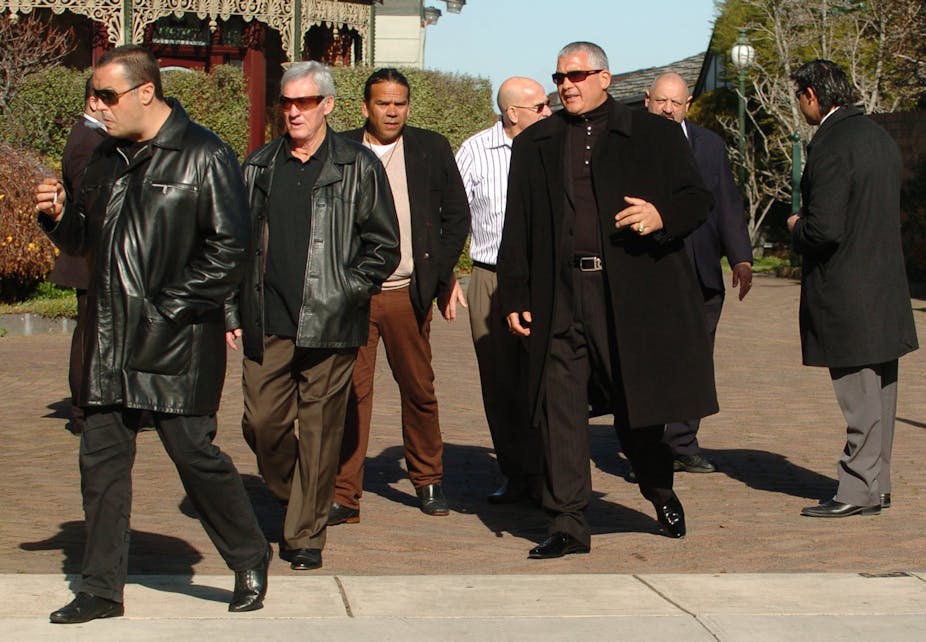
Why do we insist on “balance” when we talk about climate change, but ignore the other side of the story entirely on so many other issues?
Societies rely on “frames” to conduct and understand conversations.
One popular frame in Western democracies is this notion of “balance”, the idea that all sides of an issue deserve to be heard and that solutions can be found by weighing up their demands and needs.
This idea assumes that all sides have a roughly symmetrical entitlement to be heard, and there is much merit to this notion.
In Australian politics, the introduction of the GST was a case in point. After some parliamentary hilarity involving thermometers inserted into chooks, a compromise was found by which food remained exempt from the GST—balancing the original plan of omnibus taxation with the need to control the basic costs of living.
Resistance to such balance may deservedly sometimes earn the label “extremist”.
But “balance” is only one of several conversational frames in society.
In some situations the idea of a symmetric entitlement of opinions is ludicrous and an alternative frame is used that gives strong preference to one side over the other — for good reason.
Few, for example, would propose that the needs and opinions of law enforcement ought to be “balanced” with those of organised crime.
Tax revenues are legitimately reserved for the police and judiciary, and there is no “balancing” public expenditure for crime lords, Godfathers, and drug barons.
No one would be labelled “extremist” when invoking the law in preference to protection rackets or bribery.
Tragedy strikes when a society confuses applicability of those two different frames.
Imagine what would happen to a country when the head of its national broadcaster accused the police and courts of “group think” and suggested that the Consigliere’s paralegal writings should be given more weight by the judiciary.
Imagine a country in which the leader of a major party called the law “crap” and met with one of the Godfathers for an extended private chat.
Those are not just scary thoughts. They represent the frightening reality that has engulfed Australia.
Segments of society and the media have lost their grip on which conversational frame applies to the greatest scientific and ethical problem humanity has ever faced: climate change.
The only “balance” that applies to climate science is that of evidence, not of opinion or interests.
In the same way that verdicts of the courts should trump the protestations of organised crime, so the peer-reviewed literature must always trump internet cacophony or the opinions of think tanks.
Sadly, however, science is now often “balanced” with noise that could be debunked in a few mouse clicks.
This ill-considered “balance” recently beset Cardinal Pell when he gave Dr. Ayers, the Head of the Bureau of Meteorology, a public lesson not in seeking prayer or avoiding divorce, but in how to conduct science.
Thumping a particularly egregious piece of fiction written by an individual with no relevant peer-reviewed publications but several directorships of mining corporations, the Cardinal called Dr. Ayers’s testimony to the Senate “unscientific.”
Unscientific because Dr. Ayers relied on the peer-reviewed literature in coming to his judgment that the Earth is warming owing to human CO2 emissions.
While this incident underscores that in modern Catholicism cardinals have latitude to ignore the Holy See’s opinions, it also places Australia in uncomfortable proximity to the Land of Topsy-Turvy, one of Enid Blyton’s children’s worlds.
In Topsy-Turvy land, it will be recalled, up was down and down was up. What fun.
Except it’s not fun, but rather a travesty, when parts of society go topsy-turvy by losing the distinction between evidence and noise, between peer-review and internet memes, between science and anti-scientific ideology.
It’s a travesty when parties rely on public labelling rather than science.
Recent research at UQ found that among Australian politicians, the percentage whose views on climate are influenced by scientists (as opposed to some other source, perhaps cat palmistry) ranges from 44% to 98% across parties. The party that in its majority rejects science is the Liberal party, whereas the party that nearly exclusively relies on peer-reviewed science is the Greens.
But the Greens are readily labelled “extremist” by our gutterati and the Liberals are considered mainstream and “serious”.
It is a travesty when those who do actual science and publish in the real scientific literature are called “fundamentalist”, “warmist”, or “evangelist” for doing so, and are vilified for uncovering the potentially serious risk that humanity is facing.
This is the moral equivalent of assaulting life guards for pointing to the presence of a shark because of the inconvenience and cost incurred by interrupting a beach outing.
This situation brings into focus several important questions: Does it matter? And how do we move on from here?
There are some good arguments that this faux “balance” and assault on science ought to be set aside.
After all, the vast majority of Australians are convinced that climate change is happening and most in one way or another recognize that humans are largely responsible.
In light of peak oil and other good reasons to abandon fossil fuels, perhaps we should just move on and transition to renewable forms of energy and ignore this assault on science?
Two considerations speak against this option.
First, research shows that correct understanding of the causes of global warming is associated with people’s intentions to change relevant behaviours.
So public misrepresentations of science do have consequences, because public confusion about the science is one impediment to acting on climate change.
The second consideration may sound Jurassic in today’s Australia but its imperative is nonetheless clear.
It is simply a moral issue whether we, as a society, tolerate and acquiesce to the assault on our geophysical lifeguards.
Do we prefer reality or mindless spectacle?
So how do we move on?
Cognitive science has much to offer in this regard.
From reframing to social norming and research on reasoning and ideology, we know much about barriers to understanding and action.
But throughout, we must recognize that the only balance that counts in science is that of evidence.
This recognition must be restored to public discourse.
An extended version of this argument with references and opportunity for further discussion can be found at Shaping Tomorrow’s World.

